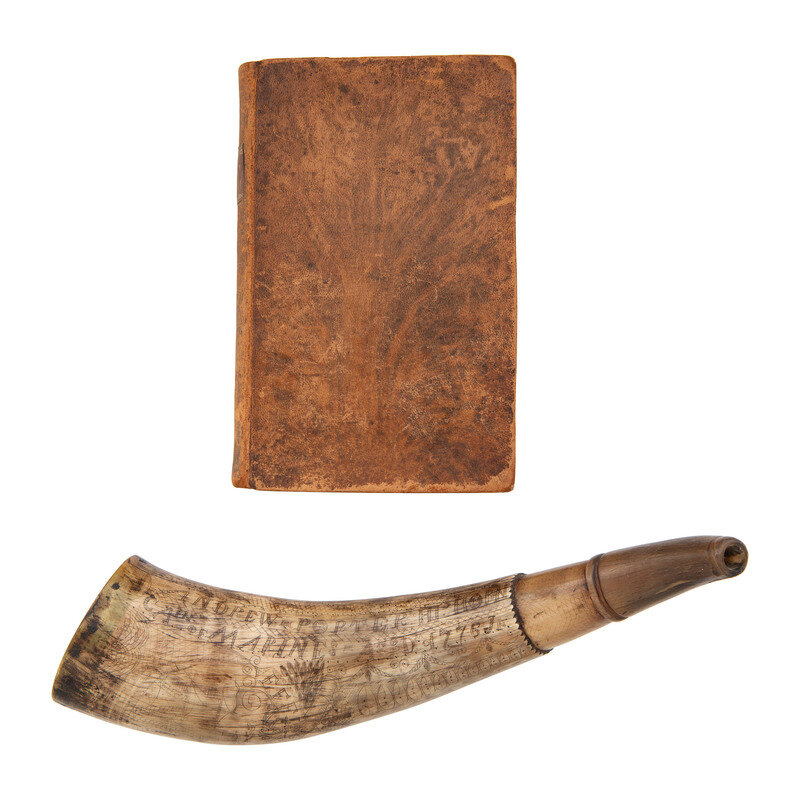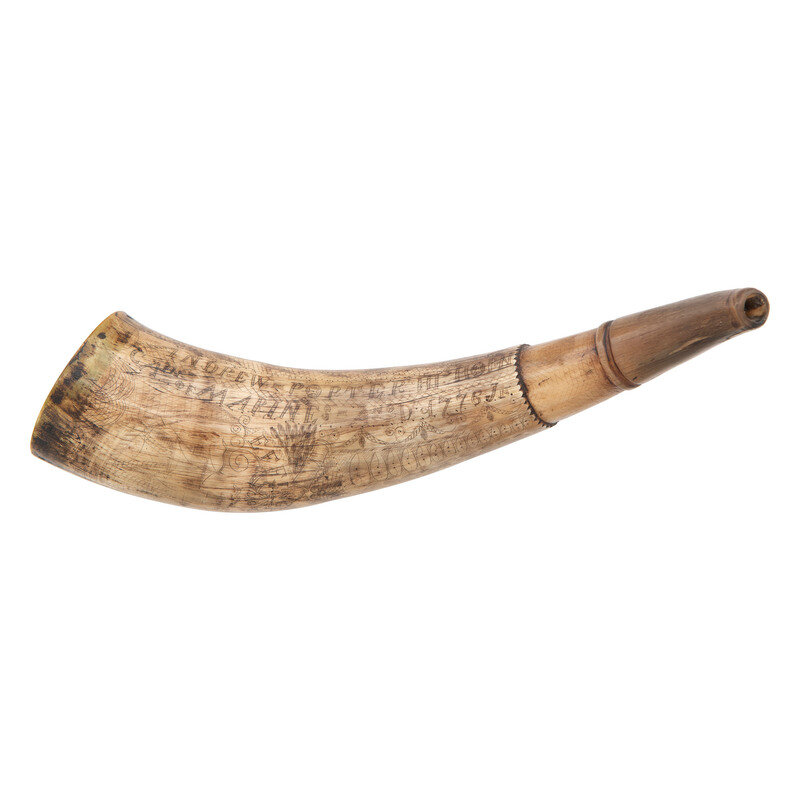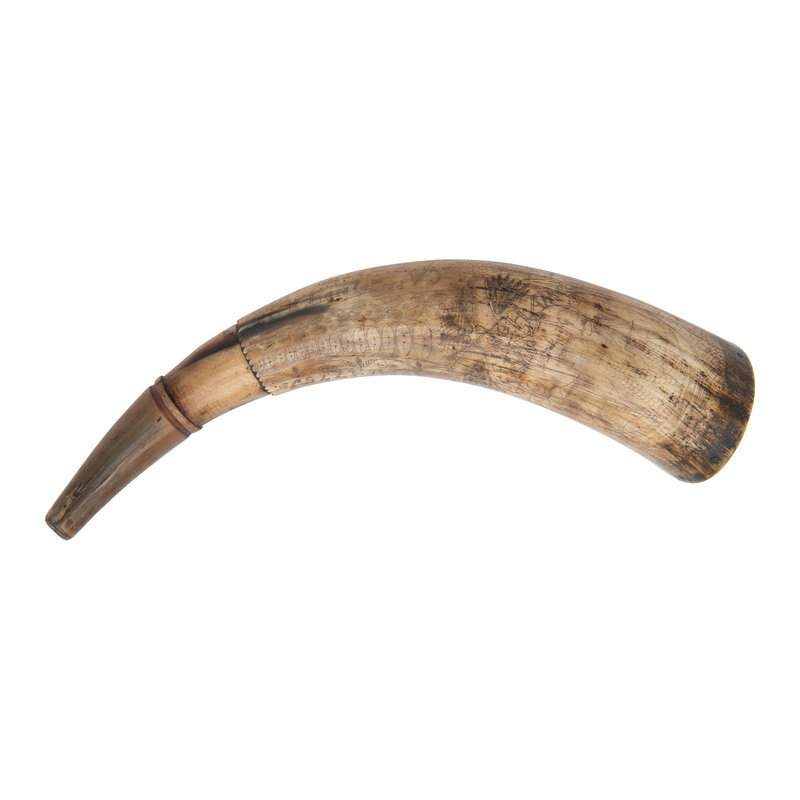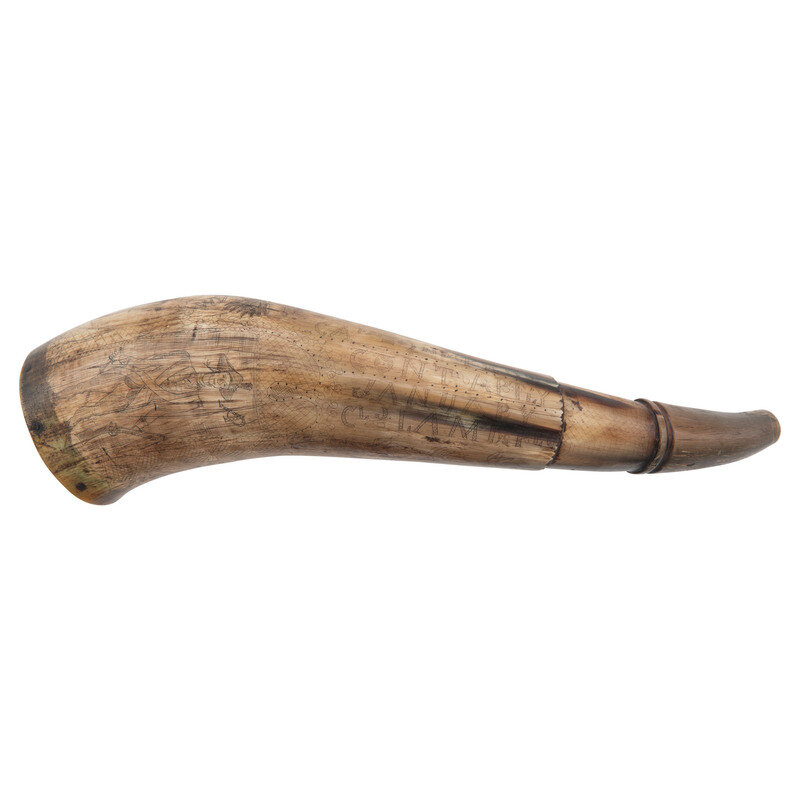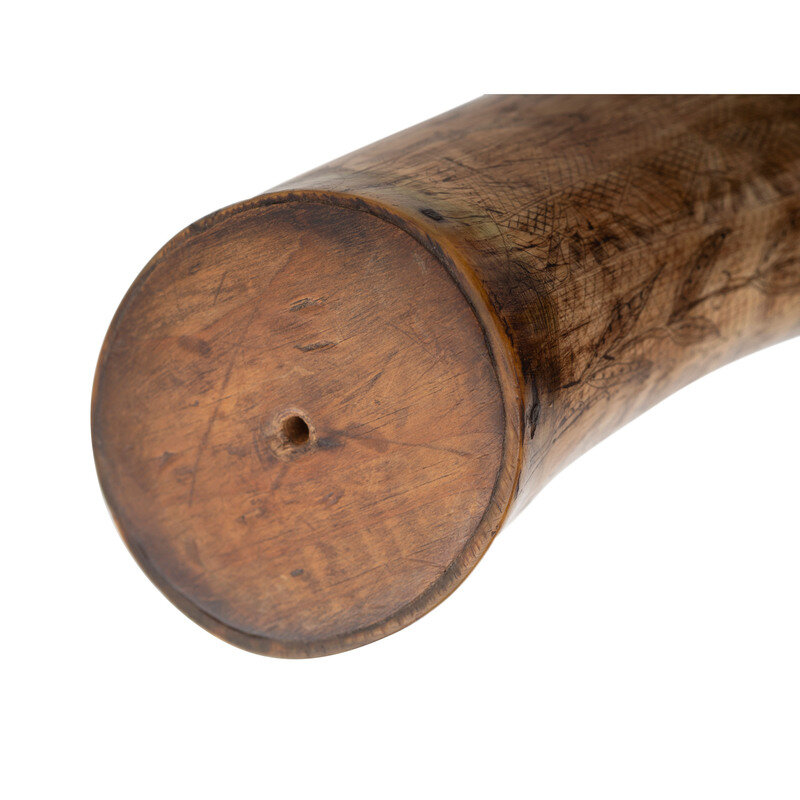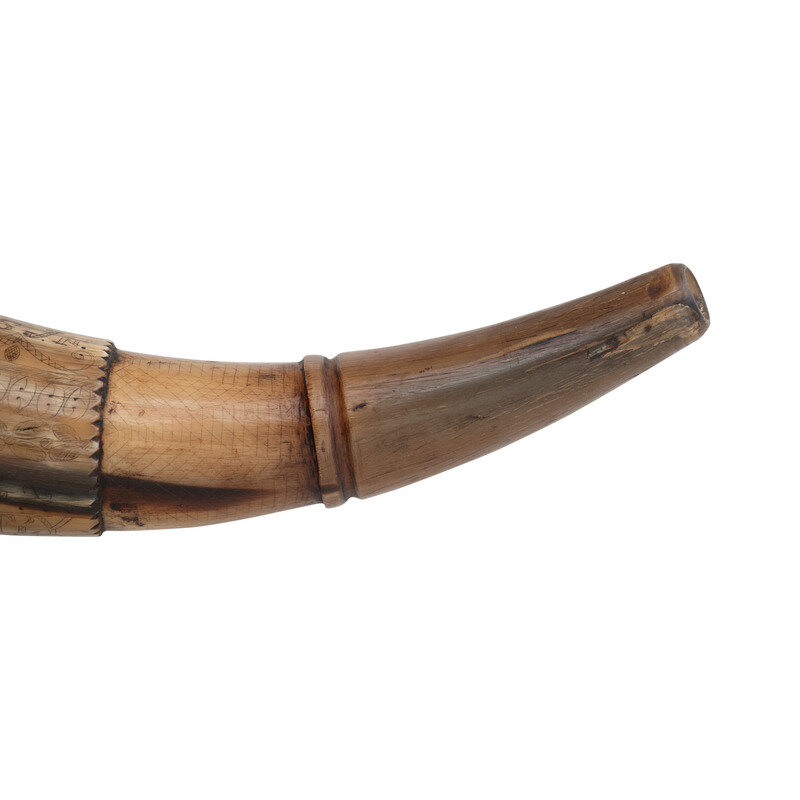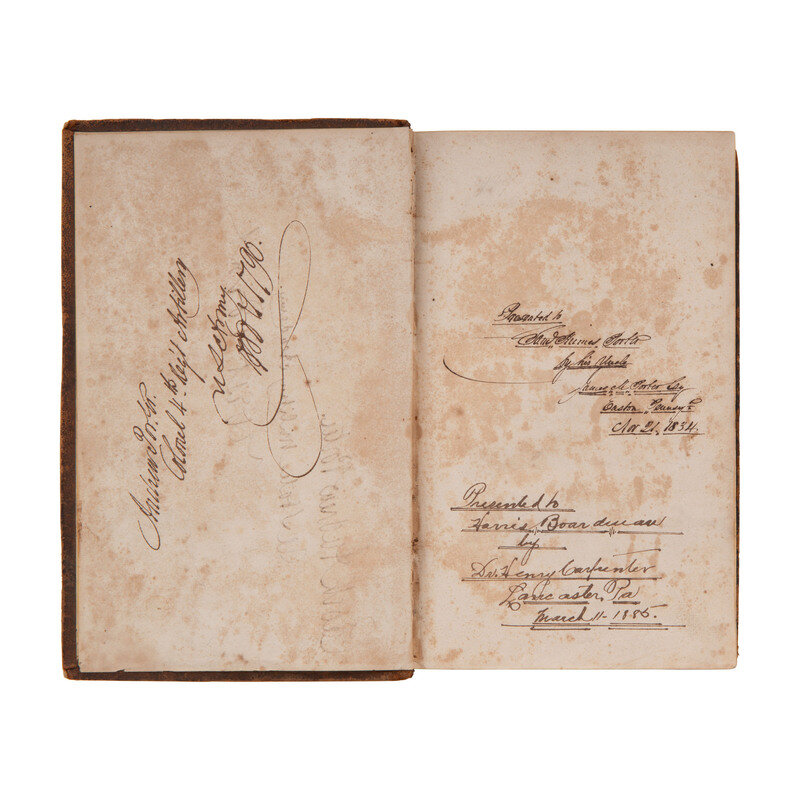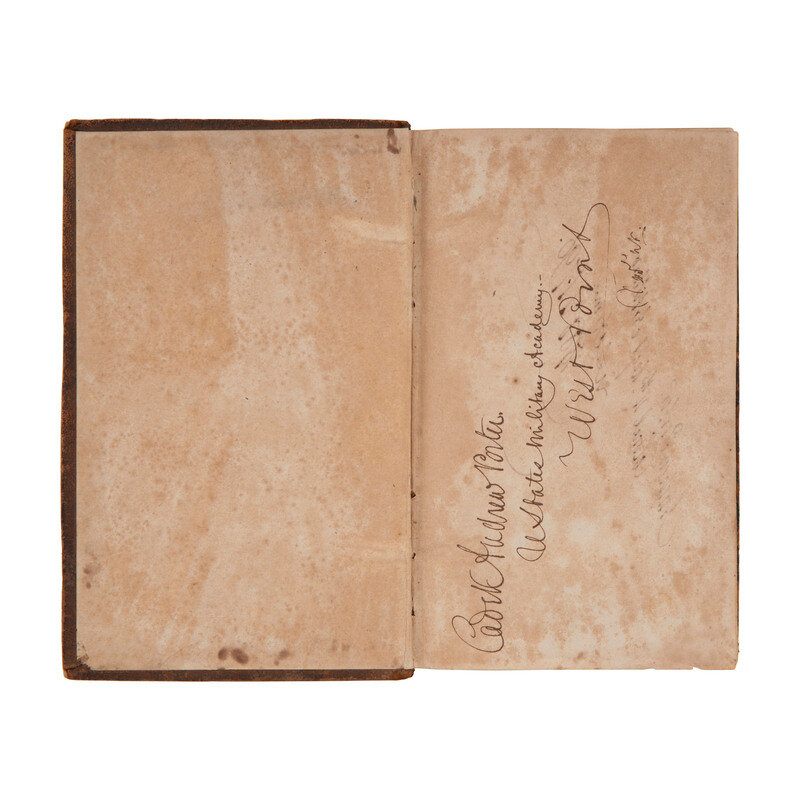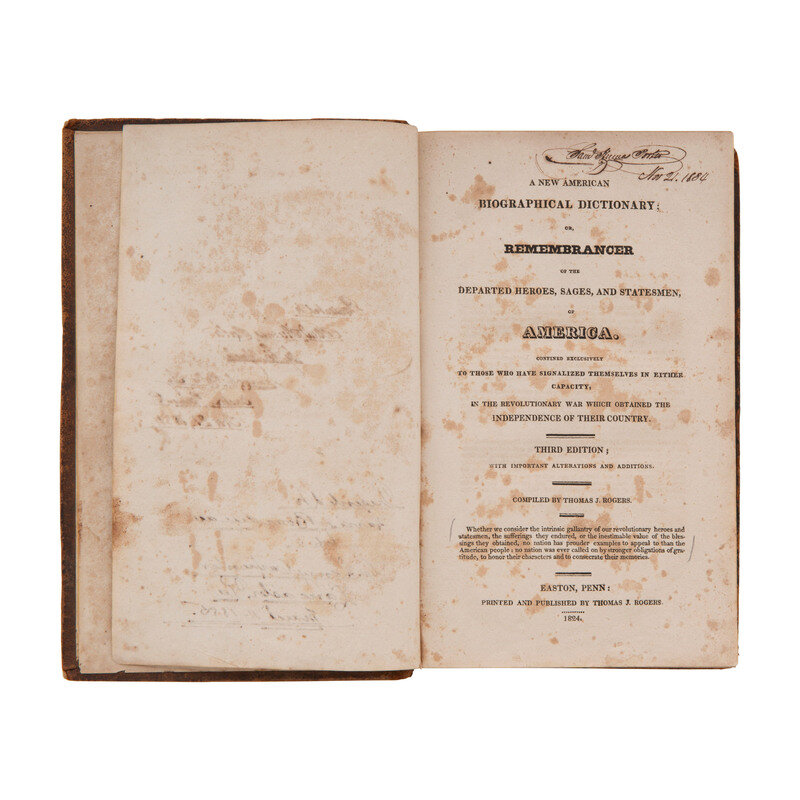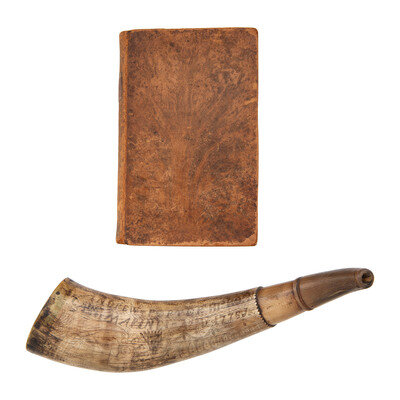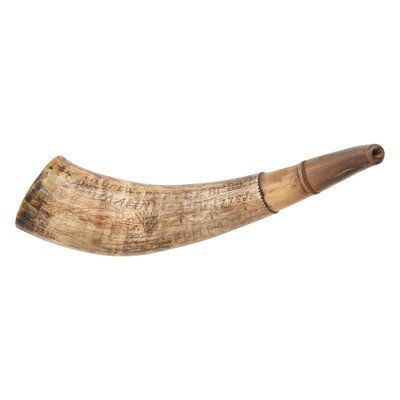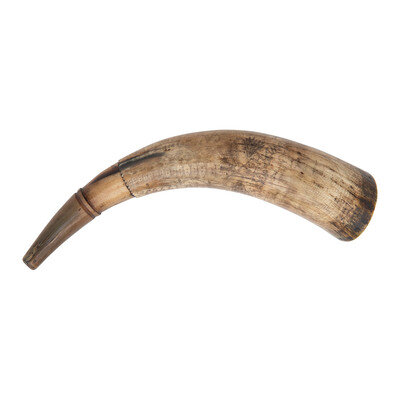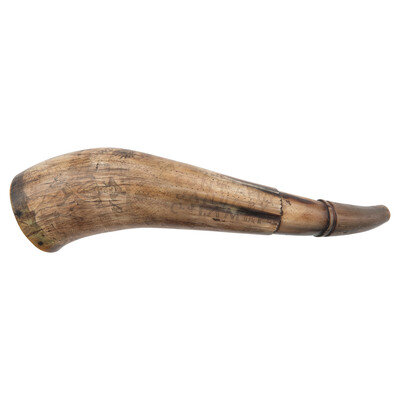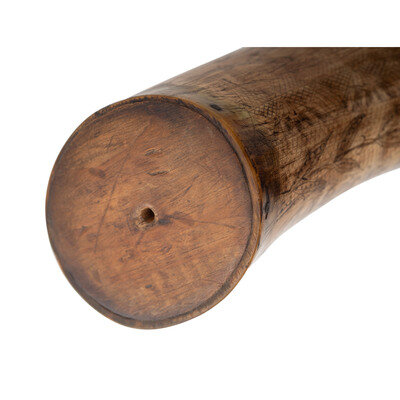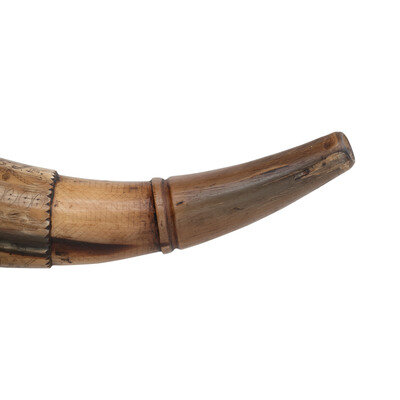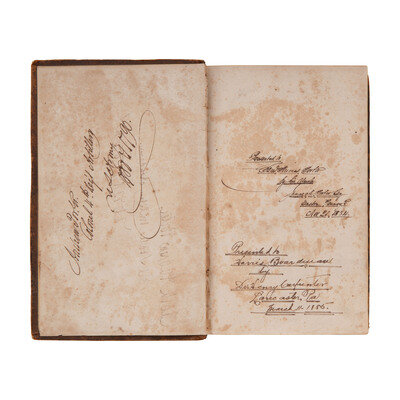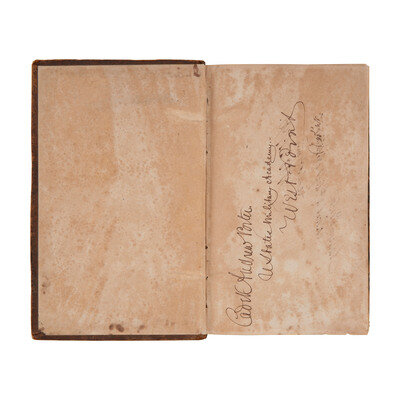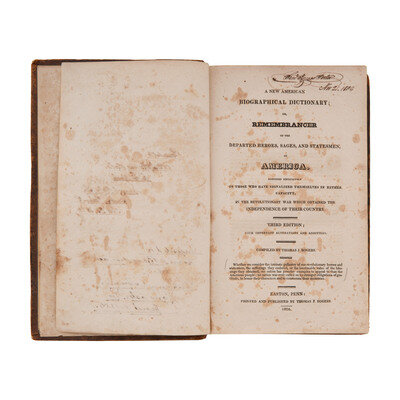Revolutionary War Centennial Carved Powder Horn for Andrew Porter - US Marine Corps & Continental Artillery with Provenance
Sale 2030 - Arms, Armor and Militaria
Oct 23, 2024
10:00AM ET
Live / Cincinnati
Own a similar item?
Estimate
$3,000 -
5,000
Price Realized
$1,800
Sold prices are inclusive of Buyer’s Premium
Lot Description
Revolutionary War Centennial Carved Powder Horn for Andrew Porter - US Marine Corps & Continental Artillery with Provenance
Nominally 12" in length carved cow's horn with a 3.25" wide oval base and 5.5" turned spout section with carved scallops at the transition to the main body. The slightly oval hardwood base plug is attached with oxidized square head finishing nails that have rusted and discolored the surrounding horn surface. The horn is carved in two lines ANDREW PORTER HIS HORN/CApt of MARINES AnoDm 1776 JN. The horn is further decorated with carved floral motifs and crosshatching, a 19th century interpretation of what a Revolutionary War US Marine officer would look like, armed with cutlass and blunderbuss, a three-masted frigate surmounted by the name EFFINGHAM and a panoply of arms. The lower portion of the spout is carved with cross hatching as well, which shows moderate wear. A hole is in the base plug where some sort of suspension ring used to be screwed in. The horn is typical of the commemorative horns carved during the Centennial of the American Revolution to commemorate famous family members, the depiction of the soldier is particularly common on these Centennial horns and is often a somewhat anachronistic portrayal as it is a 19th century interpretation of what those men looked like 100 years earlier. This horn apparently descended in the family before being acquired as part of a collection circa the 1960s and is accompanied by an 1824 printing of a Porter family owned book entitled American Biography which provides details of Andrew Porter's life. There is a November 21, 1834 presentation inside the front cover to Porter's son from his uncle James, and a second, much later presentation dated March 11, 1885. Andrew Porter's biographical sketch is printed on pages 379-382 of the book. The horn is further accompanied by some research on Andrew Porter, copies of his service records from the Revolutionary War, several letters regarding the horn from well-known upstate New York antiques dealer and collector Ed Kreinherder, who owned it twice in his career, and other pieces of provenance including a chain of custody since the horn left the family for the collector market. Interestingly, one of the letters from Mr. Kreinherder to one of the buyers, dated 11 October 2000, notes that the Marine Corps museum had an interest in acquiring and displaying the horn.
Andrew Porter (1743-1813) was born in Montgomery County, PA in what is now Worcester Township. The child of Irish immigrants who were modest farmers, young Andrew showed no interest in manual labor but rather a penchant for reading and mathematics. Andrew was such a precocious student that he soon mastered many fields and in 1767 moved to Philadelphia where he became the master of an "English & Mathematics" school. After the Revolutionary War erupted, Porter decided to fight for his newly founded country and was commissioned a Captain of Marines in June of 1776. He was assigned to the frigate Effingham, which is depicted on the powder horn. He served there into 1777 when to better utilize his gift for mathematics he was made a Captain in the 2nd Continental Artillery. He served in that position into 1783 and during that time was engaged at the battles of Trenton, Princeton, Brandywine and Germantown. In 1783 he was made Colonel of the 4th Continental Artillery (Pennsylvania) and was heavily involved with the preparation of the artillery for the Siege of Yorktown at the direction of General George Washington. After the war Porter became a Major General in the Pennsylvania Militia and served as the state's surveyor general and a commissioner in the establishment of the Pennsylvania, Virginia and Ohio state lines. During the latter part of his life he was offered the Cabinet position of Secretary of War by President James Madison, but he declined it. Porter died in 1813. Two of Porter's grandsons saw service with the Union Army during the American Civil War. General Horace Porter was an aide-de-camp to General Grant, a recipient of the Medal of Honor and later served as Ambassador to France. Andrew Porter was also a general who served on General McClellan's staff and later was the Provost Marshal of the Army of the Potomac. Most interestingly, Mary Todd Lincoln was also a descendent of Porter and was his great-granddaughter.
Andrew Porter (1743-1813) was born in Montgomery County, PA in what is now Worcester Township. The child of Irish immigrants who were modest farmers, young Andrew showed no interest in manual labor but rather a penchant for reading and mathematics. Andrew was such a precocious student that he soon mastered many fields and in 1767 moved to Philadelphia where he became the master of an "English & Mathematics" school. After the Revolutionary War erupted, Porter decided to fight for his newly founded country and was commissioned a Captain of Marines in June of 1776. He was assigned to the frigate Effingham, which is depicted on the powder horn. He served there into 1777 when to better utilize his gift for mathematics he was made a Captain in the 2nd Continental Artillery. He served in that position into 1783 and during that time was engaged at the battles of Trenton, Princeton, Brandywine and Germantown. In 1783 he was made Colonel of the 4th Continental Artillery (Pennsylvania) and was heavily involved with the preparation of the artillery for the Siege of Yorktown at the direction of General George Washington. After the war Porter became a Major General in the Pennsylvania Militia and served as the state's surveyor general and a commissioner in the establishment of the Pennsylvania, Virginia and Ohio state lines. During the latter part of his life he was offered the Cabinet position of Secretary of War by President James Madison, but he declined it. Porter died in 1813. Two of Porter's grandsons saw service with the Union Army during the American Civil War. General Horace Porter was an aide-de-camp to General Grant, a recipient of the Medal of Honor and later served as Ambassador to France. Andrew Porter was also a general who served on General McClellan's staff and later was the Provost Marshal of the Army of the Potomac. Most interestingly, Mary Todd Lincoln was also a descendent of Porter and was his great-granddaughter.
This lot is located in Cincinnati.
ex-Donald Handrick collection, ex-Ed Kreinherder collection
Condition Report
Auction Specialists
